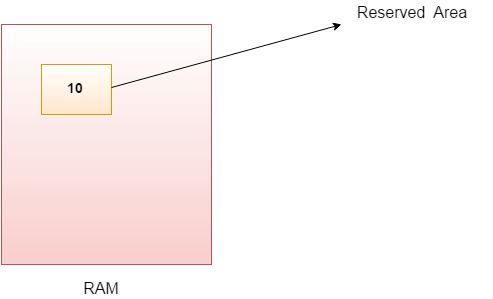Java Variables
A variable is a container which holds the value while the Java program is executed. A variable is assigned with a data type.
Variable is a name of memory location. There are three types of variables in java: local, instance and static.
There are two types of data types in Java: primitive and non-primitive.
In Java, a variable is a named container that stores a value. A variable is declared using a data type, a name, and an optional initial value. Once a variable is declared and initialized, it can be used to store and manipulate data throughout the program.
The syntax for declaring a variable in Java is as follows:
rust
Copy code
data_type variable_name;
Here, data_type is the data type of the variable, and variable_name is the name of the variable. For example, to declare an integer variable named x, we can write:
python
Copy code
int x;
To initialize a variable with a value, we can use the following syntax:
java
Copy code
data_type variable_name = initial_value;
For example, to declare and initialize an integer variable named y with a value of 10, we can write:
python
Copy code
int y = 10;
Java supports several data types for variables, including primitive data types such as int, float, and boolean, as well as reference data types such as String and Object. Variables can also be classified as instance variables, class variables, or local variables, depending on their scope and where they are declared in the program.
In summary, a variable in Java is a named container that stores a value. Variables are declared using a data type and a name, and can be initialized with an optional initial value. Java supports several data types for variables, and variables can be classified based on their scope and where they are declared in the program.
Variable
A variable is the name of a reserved area allocated in memory. In other words, it is a name of the memory location. It is a combination of "vary + able" which means its value can be changed.

Types of Variables
There are three types of variables in Java:
- local variable
- instance variable
- static variable
1) Local Variable
A variable declared inside the body of the method is called local variable. You can use this variable only within that method and the other methods in the class aren't even aware that the variable exists.
A local variable cannot be defined with "static" keyword.
2) Instance Variable
A variable declared inside the class but outside the body of the method, is called an instance variable. It is not declared as static.
It is called an instance variable because its value is instance-specific and is not shared among instances.
3) Static variable
A variable that is declared as static is called a static variable. It cannot be local. You can create a single copy of the static variable and share it among all the instances of the class. Memory allocation for static variables happens only once when the class is loaded in the memory.
Example to understand the types of variables in java
Java Variable Example: Add Two Numbers
Output:
20
Java Variable Example: Widening
Output:
10 10.0
Java Variable Example: Narrowing (Typecasting)
Output:
10.5 10
Java Variable Example: Overflow
Output:
130 -126
Java Variable Example: Adding Lower Type
Output:
20
